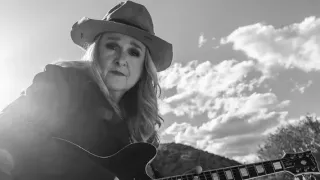March 20, 2019
Jeanine Pirro Case Squeezes Fox News in Two Directions
David Bauder READ TIME: 2 MIN.
The apparent suspension of Jeanine Pirro is squeezing Fox News Channel in two directions.
A prominent Muslim-American civil rights organization is calling for advertisers to boycott Fox News, while another group is petitioning to have the weekend host reinstated.
Pirro wasn't on the air Saturday, a week after Fox publicly condemned her for comments questioning U.S. Rep. Ilhan Omar's loyalty because she wears a Muslim head covering. Fox hasn't explained the former New York-area district attorney's absence, declining to comment on "internal scheduling matters."
The network's schedule for the upcoming weekend lists another program in Pirro's time slot.
The Council on American-Islamic Relations, the nation's largest Muslim civil rights organization, this week said that advertisers should boycott Fox News until Pirro and prime-time host Tucker Carlson were fired. Carlson has been fighting back since being criticized last week for comments made on a radio show a decade ago and unearthed last week.
Meanwhile, the lobbying group Act for America urged its members write to Fox News CEO Suzanne Scott to complain about Pirro's absence. In its online message, Act for America said that instead of rewarding its anchor for opening a much-needed debate, "Fox News caved to pressure from the radical left."
"Jeanine Pirro did nothing wrong," the group's leader, Brigitte Gabriel, said via tweet. "People should be outraged."
Act for America has been listed as a hate group by the Southern Poverty Law Center for anti-Muslim rhetoric. Gabriel has tweeted in recent days that she considered SPLC a hate group.
Act for America said more than 20,000 people have responded to its request to email Scott. Fox News had no comment on the campaign Tuesday.
Act for America was echoing tweets by President Donald Trump last weekend. He had also proclaimed his support for Pirro and advocated for her reinstatement.
Pirro has issued one statement through Fox, saying she did not call Omar un-American and that "my intention was to ask a question and start a debate, but of course because one is Muslim does not mean you don't support the Constitution."
Gabriel had appeared with Pirro last Friday on the online Fox Nation service, where the advocacy group leader referred to Omar and a colleague, Rep. Rashida Talib, as anti-Semitic, in a transcript provided by the liberal media watchdog Media Matters for America. Of the two representatives, Pirro said, "it's almost as though they think they're representing another country."
Gabriel also criticized Fox in the wake of its hiring Monday of former Democratic National Committee chief Donna Brazile as a political commentator.
Between the suspension of Pirro and hiring of Brazile, "if that doesn't show you the direction Fox News is headed I don't know what will," she tweeted.






